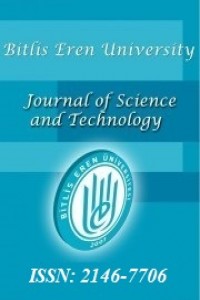Research Article
Year 2018,
Volume: 8 Issue: 2, 81 - 84, 21.12.2018
Abstract
- Present
study has been conducted to investigate the effects of raising the awareness of
middle-school students toward hand hygiene via using theater performances. The
population of this intervention study consists of 5th and 6th graders studying
at the Middle-school. Prior to using the theater performance, 15.7% of students
practiced proper hand-washing technique while after the theater, the ratios
escalated to 33.8%. After the intervention, there was a statistically
significant increase in the ratio of respondents having emphasized the need to
wash hands as shown by the demonstrated technique(p<0.05). İt was
demonstrated that upon performing drama, entertainment and didactic scenarios
integrated theater activities among middle-school students, there was a heightened
level of hand-hygiene awareness toward a manifold of issues in the short term.
In addition it was detected that by teaching the proper technique students
achieved to double increase their knowledge on hand hygiene.
References
- Adams, J., Bartram, J., Chartier, Y., Simms, J., 2009. Water Sanitation and Hygiene Standards for Schools in Low-cost Settings. Geneva, Switzerland: WHO Press.
- American Academy of Pediatrics(AAP), American Public Health Association(APHA)., 2011. Caring for Our Children: Children-National Health and Safety Performance Standards; Guidelines for Early Care and Early Education Programs (3rd Edition). Elk Grove Village, Illinois, United States: APP Publication
- Buitrago, J., Gómez, S., Guerra, A., Lucumí, L., Romero, C., Sánchez, J., 2013. Evaluation of an educational, theater-based intervention on attitudes toward organ donation in Risaralda, Colombia. Colombia Medica, 44(1), 38-42.
- Belknap, RA., Haglund, K., Felzer, H., Pruszynski, J., Schneider, J., 2013. A theater intervention to prevent teen dating violence for Mexican-American middle school students. J. Adolesc. Health, 53(1), 62-67.
- Dow, AW., Leong, D., Anderson, A., Wenzel, RP., 2007. Using theater to teach clinical empathy: A pilot study. J Gen Intern Med, 22(8), 1114-18.
- Elliott, A., Gahan, G., 2000. Getting On- Without Getting It. The Bulletin of Good Practice in Popular Education, 5, 2-6.
- Ghosh, SK., Patil, RR., Tiwari, S., Dash, AP., 2006. A community-based health education programme for bio-environmental control of malaria through folk theatre (kalajatha) in rural India. Malaria Journal, 5, 123-9.
- Lauby, JL., LaPollo, AB., Herbst, JH., Painter, TM., Batson, H., Pierre, A., Milnamow, M., 2010. Preventing aids through live movement and sound: efficacy of a theater-based HIV prevention intervention delivered to high-risk male adolescents in juvenile justice settings. AIDS Education & Prevention, 22(5), 402-16.
- Jukes, M.C.H., Drake, L.J., Bundy, D.A.P., 2007. School, Health, Nutrition and Education for All-Levelling The Playing Field. Cambridge, MA, USA: CABI Publishing.
- Mbizvo, E., 2006. Theatre--a force for health promotion. Lancet, 368, 30-31.
- MacRae, N., Pardue, KT., 2007. Use of readers theater to enhance interdisciplinary geriatric education. Educational gerontology, 33(6), 529-536.
- The World Bank., 2011. Rethinking School Health-Key Component of Education for All. Washington, D.C., USA: World Bank Publications.
- Taggart, T., Taboada, A., Stein, JA., Milburn, NG., Gere, D., Lightfoot, AF., 2016. AMP!: A cross-site analysis of the effects of a theater-based ıntervention on adolescent awareness, attitudes, and knowledge about HIV. Prevention Science, 17(5), 544-53.
- Yoshihama, M., Tolman, RM., 2015. Using interactive theater to create socioculturally relevant community-based intimate partner violence prevention. Am J Community Psychol, 55(1-2), 136-47.
Year 2018,
Volume: 8 Issue: 2, 81 - 84, 21.12.2018
Abstract
References
- Adams, J., Bartram, J., Chartier, Y., Simms, J., 2009. Water Sanitation and Hygiene Standards for Schools in Low-cost Settings. Geneva, Switzerland: WHO Press.
- American Academy of Pediatrics(AAP), American Public Health Association(APHA)., 2011. Caring for Our Children: Children-National Health and Safety Performance Standards; Guidelines for Early Care and Early Education Programs (3rd Edition). Elk Grove Village, Illinois, United States: APP Publication
- Buitrago, J., Gómez, S., Guerra, A., Lucumí, L., Romero, C., Sánchez, J., 2013. Evaluation of an educational, theater-based intervention on attitudes toward organ donation in Risaralda, Colombia. Colombia Medica, 44(1), 38-42.
- Belknap, RA., Haglund, K., Felzer, H., Pruszynski, J., Schneider, J., 2013. A theater intervention to prevent teen dating violence for Mexican-American middle school students. J. Adolesc. Health, 53(1), 62-67.
- Dow, AW., Leong, D., Anderson, A., Wenzel, RP., 2007. Using theater to teach clinical empathy: A pilot study. J Gen Intern Med, 22(8), 1114-18.
- Elliott, A., Gahan, G., 2000. Getting On- Without Getting It. The Bulletin of Good Practice in Popular Education, 5, 2-6.
- Ghosh, SK., Patil, RR., Tiwari, S., Dash, AP., 2006. A community-based health education programme for bio-environmental control of malaria through folk theatre (kalajatha) in rural India. Malaria Journal, 5, 123-9.
- Lauby, JL., LaPollo, AB., Herbst, JH., Painter, TM., Batson, H., Pierre, A., Milnamow, M., 2010. Preventing aids through live movement and sound: efficacy of a theater-based HIV prevention intervention delivered to high-risk male adolescents in juvenile justice settings. AIDS Education & Prevention, 22(5), 402-16.
- Jukes, M.C.H., Drake, L.J., Bundy, D.A.P., 2007. School, Health, Nutrition and Education for All-Levelling The Playing Field. Cambridge, MA, USA: CABI Publishing.
- Mbizvo, E., 2006. Theatre--a force for health promotion. Lancet, 368, 30-31.
- MacRae, N., Pardue, KT., 2007. Use of readers theater to enhance interdisciplinary geriatric education. Educational gerontology, 33(6), 529-536.
- The World Bank., 2011. Rethinking School Health-Key Component of Education for All. Washington, D.C., USA: World Bank Publications.
- Taggart, T., Taboada, A., Stein, JA., Milburn, NG., Gere, D., Lightfoot, AF., 2016. AMP!: A cross-site analysis of the effects of a theater-based ıntervention on adolescent awareness, attitudes, and knowledge about HIV. Prevention Science, 17(5), 544-53.
- Yoshihama, M., Tolman, RM., 2015. Using interactive theater to create socioculturally relevant community-based intimate partner violence prevention. Am J Community Psychol, 55(1-2), 136-47.
There are 14 citations in total.
Details
| Journal Section | Articles |
|---|---|
| Authors | |
| Publication Date | December 21, 2018 |
| Submission Date | December 24, 2017 |
| Published in Issue | Year 2018 Volume: 8 Issue: 2 |

